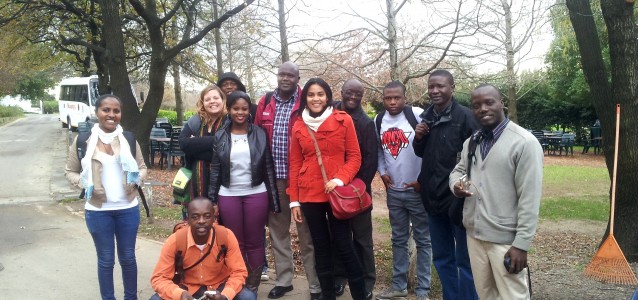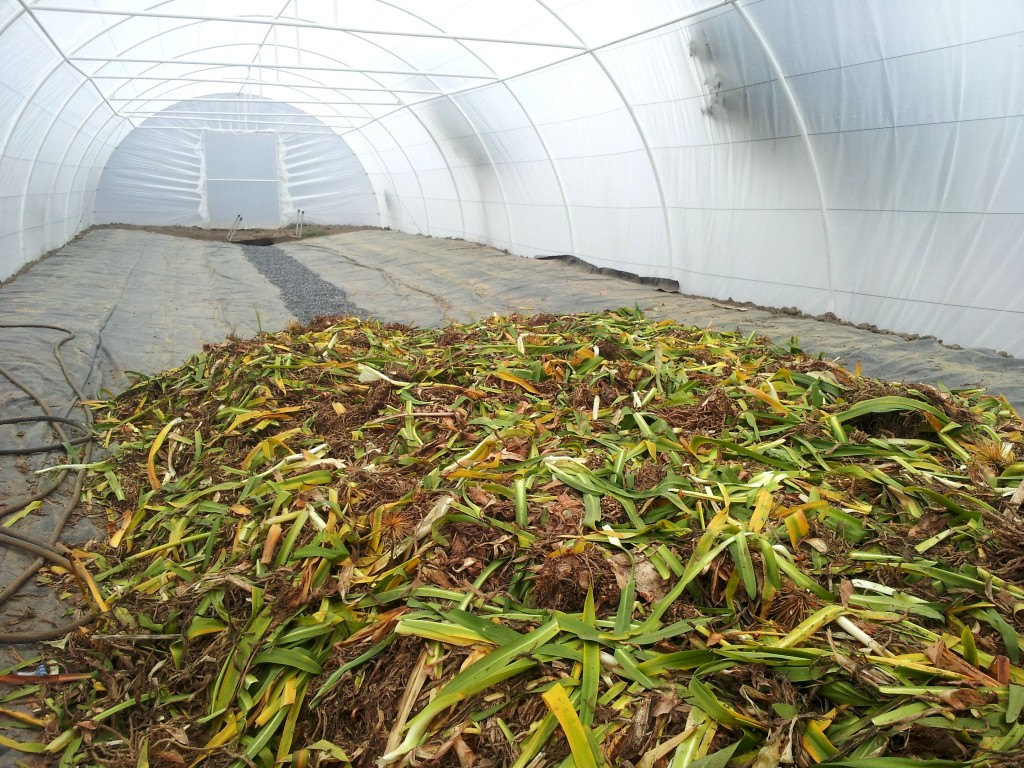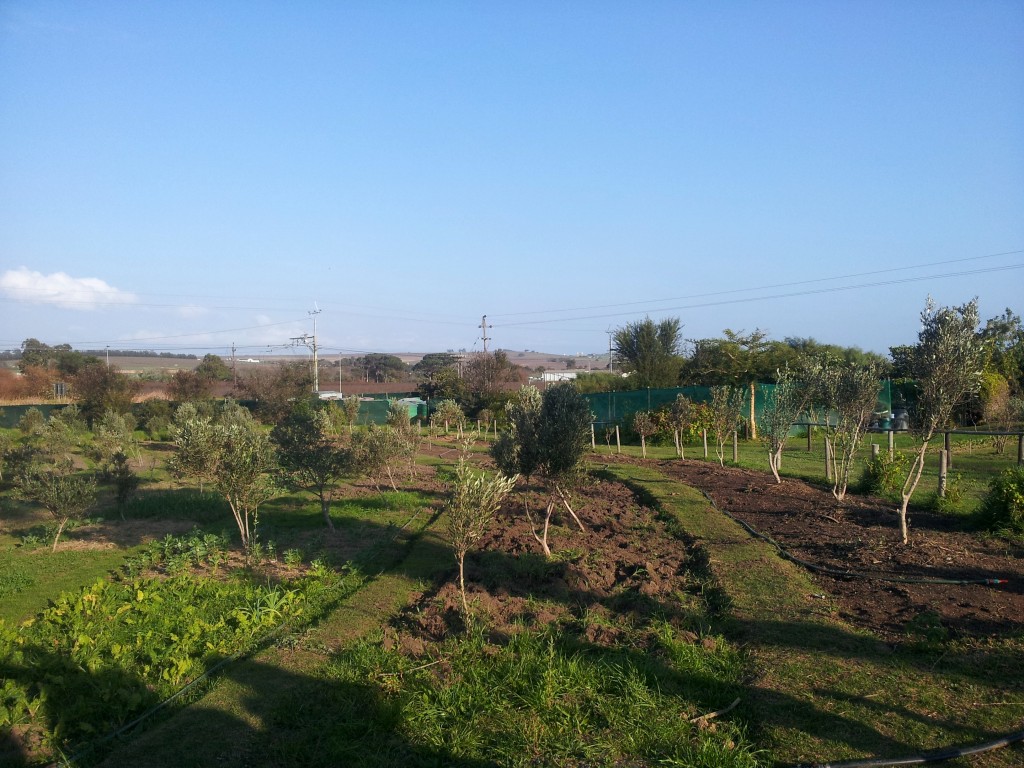This year the CSAG UNITAR/C3D+ Winterschool participants visited Backsberg Estate Cellars and the Sustainability Institute for their field day. Backsberg Estate Cellars were chosen as they are the first wine producers in South Africa and one of only three in the world to gain Carbon Neutral status by sequestrating their carbon emissions. The participants were given a guided tour of the Estate by Simon Back, who provided information with regards to Backsberg’s sustainability initiatives, as well as the adaptation strategies employed and those that the estate is experimenting with. The tour went through the process of producing wine from grape to bottle, and the participants were able to follow the process as it was explained from vineyard to cellar to wine tasting. The guided tour included detailed information about the estate’s sustainability and adaptation plans and Simon was very helpful in answering any questions the participants had with regards to the wine making process and new initiatives being employed by the estate. Simon told an honest and detailed tale of Backsberg’s efforts in adaptation and sustainability, the tried and tested – he included both the successful and failed experiments in his discussion. Certain initiatives have worked brilliantly, such as using organic waste to produce compost using hothouses and the introduction of worms, as well as the ‘Tread Lightly’ initiative where Backsberg has chosen to bottle one of their wine varieties in light plastic bottles in order to reduce emissions released during the transportation of the wine. With many of the participants originating from countries that do not have vineyards – the experience was new and exciting for many of them!
Compost being made in a hot house
The second visit of the field day took the participants to the Sustainability Institute in Stellenbosch. Here the participants were given a tour of the village by Louise Bezuidenhout, a member of the institute. The Sustainability Institute is a unique initiative that focuses on youth development and education, post-graduate training in sustainability, and an eco-community village. The institute is located on an estate called Lyndoch. The estate is made up of numerous buildings that host youth development programs, various forms of training and schooling, a creche, and a community garden. The Institute runs in collaboration with Stellenbosch University and thus is host to Masters and PhD students who specialise in sustainability. The members of the Sustainability Institute, which includes a whole variety of livelihood types from child-carers and kitchen staff to chartered accountants and organic farmers mostly live within the eco-village. The eco-village, located in a residential space on Lyndoch estate is a community initiative that strives to live sustainable lives to the best of their ability. Houses are built from a variety of materials, from sand bags and straw bails – to recycled bricks from demolition sites. The participants were given a tour of the training areas, the eco-village, and the organic garden, and had questions answered by Louise, who gave such thorough answers as she lives in the eco-village and helps run the Institute.
Organic community garden at the sustainability institute
All in all the participants, and the CSAG staff who attended, had a fun and informative field day, discovering the implementation of sustainable techniques and adaptive strategies when it comes to wine farming, and house building. It was incredibly valuable to see first hand how adaptive strategies and sustainability initiatives play out in the real world. The participants were able to see how sometimes plans at sustainability and adaptation do not work, but were also given the opportunity to see how sustainable methods and adaptive strategies can work and be truly successful.
For more information: Backsberg Estate Cellars and the Sustainability Institute


